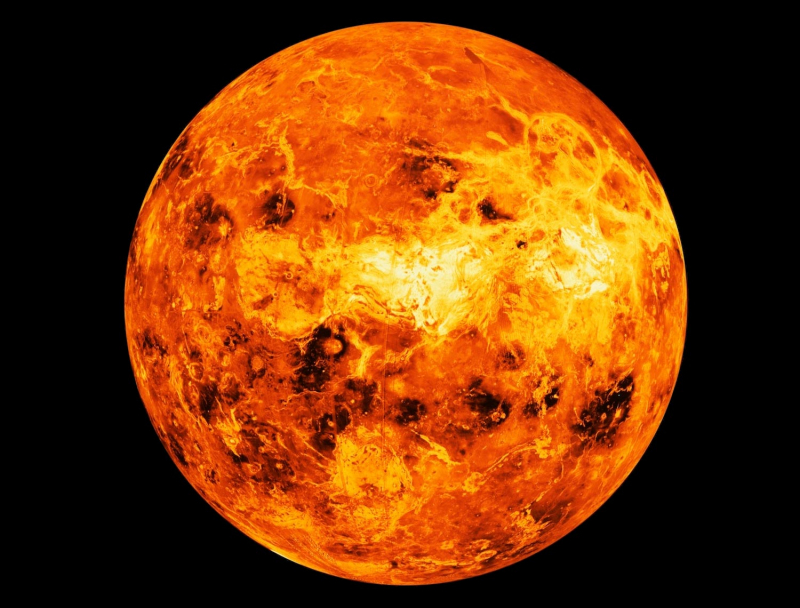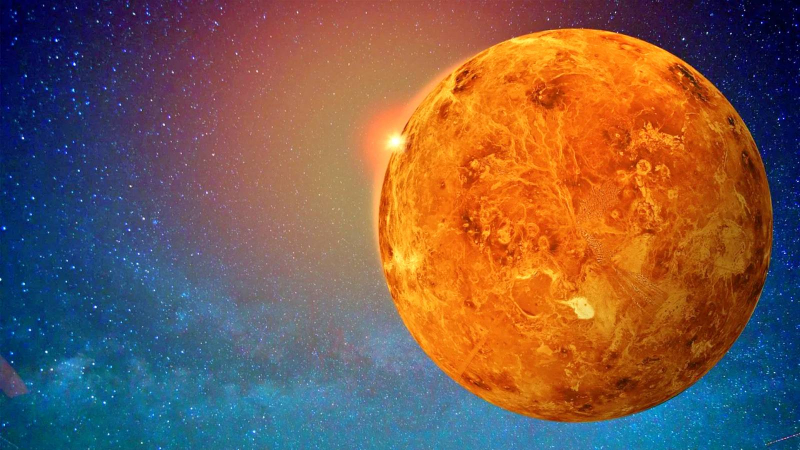Venus Is Hotter Than Mercury, Despite Being Further Away From the Sun

Because of its similarity to Earth in terms of size, mass, distance from the Sun, and bulk composition, Venus, the third-smallest planet in the solar system, is frequently referred to as Earth's "sister planet." In other ways, it differs greatly from Earth. With an atmosphere made up of more than 96% carbon dioxide, it has the densest atmosphere of the four terrestrial planets. The air pressure on the planet's surface is nearly 92 times greater than the pressure at sea level on Earth, or about 900 meters (3,000 feet) underwater.
Venus has the warmest surface of any planet in the Solar System, with a mean temperature of 737 K (464 °C; 867 °F), despite Mercury being closer to the Sun. Venus' surface cannot be seen from Earth because of an opaque covering of sulfuric acid clouds that are extremely reflective. Oceans of water may have existed in the past, but when they evaporated, a runaway greenhouse effect caused the temperature to rise. Due to the absence of a planetary magnetic field, the water has most likely photodissociated, and the free hydrogen has been carried into interplanetary space by the solar wind. The planet is sometimes referred to as Earth's "evil twin" due to the deadly surface conditions.
Mean temperature: 737 K (464 °C; 867 °F)







